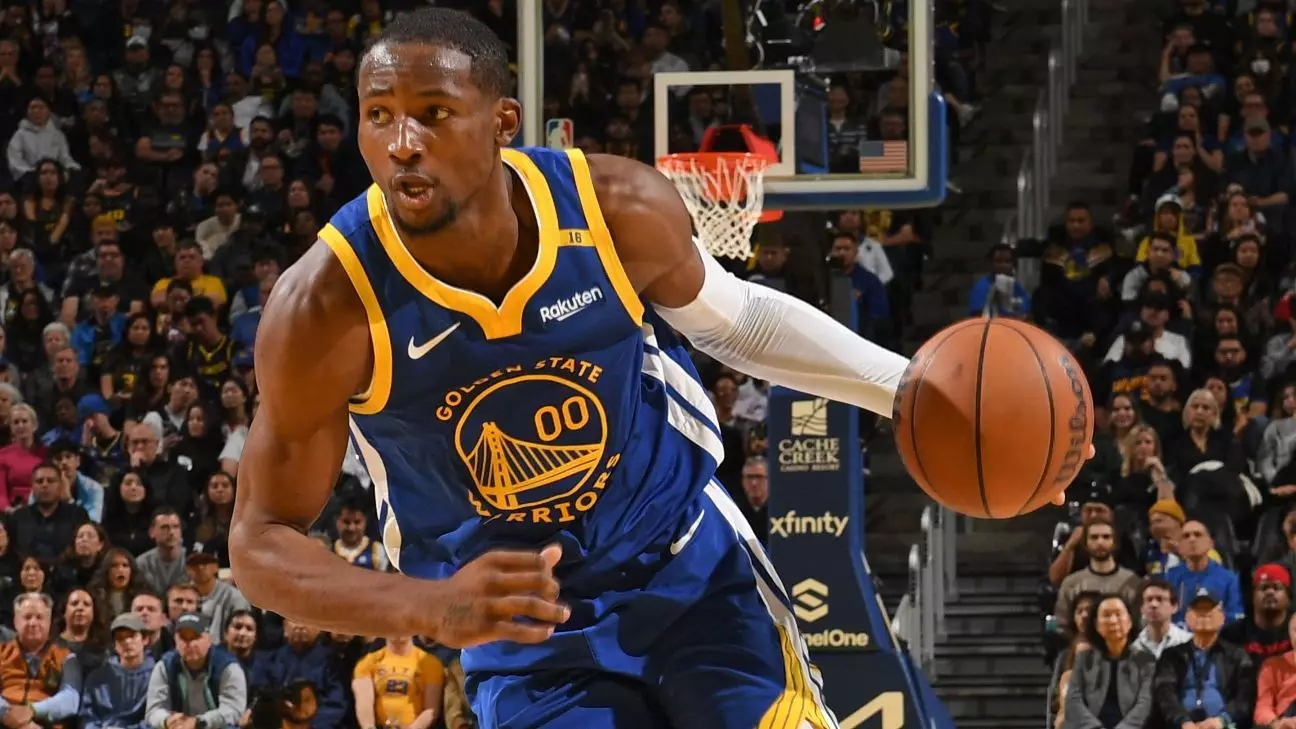In the high-stakes world of the NBA, few stories are as compelling as that of Jonathan Kuminga’s ongoing contract negotiations with the Golden State Warriors. More than just a matter of dollars and cents, this standoff reveals a young athlete’s fierce desire for recognition, a demand for a prominent role, and his refusal to accept being sidelined in pursuit of greater aspirations. Kuminga’s strategic patience and clear vision highlight a broader trend among emerging stars eager to carve out their own path rather than accept prescribed roles handed down by established franchises.
His reluctance to accept the Warriors’ latest offer signals a pivotal moment in his career—an assertion of self-worth and a desire for meaningful opportunities, not just a paycheck. Despite the Warriors’ willingness to keep him on a favorable financial trajectory, Kuminga seeks assurance of a consistent starting job and a chance to demonstrate his true potential. His stance embodies a growing desire among young players to control their narrative, an attitude that often clashes with traditional team-building strategies but can, paradoxically, serve as a catalyst for substantial growth.
Whether Kuminga will settle for the current offer or continue to hold out remains to be seen, but his willingness to explore other options underscores a vital principle: Ambition must be paired with risk if a player hopes to truly step into the spotlight. His case exemplifies the importance of agency in a league that often values tradition over individual assertiveness.
Warriors’ Calculated Patience and Strategic Moves
The Golden State Warriors find themselves at a crossroads, caught between their desire to retain Kuminga and the increasingly cold market for restricted free agents. Their deliberate approach—refusing to rush into signing or making drastic trades—reflects a nuanced understanding of their financial landscape and roster needs. With a roster that’s already investing heavily in established stars, the Warriors are cautious about overextending or making hasty decisions that could jeopardize their cap flexibility.
Their strategic stance is evident in their firm stance on requiring a first-round pick in any sign-and-trade, especially with suitors like Phoenix and Sacramento who lack the necessary assets. The Warriors’ focus on value—whether through their targeted pursuit of veterans like Al Horford or bench shooters Seth Curry and De’Anthony Melton—demonstrates a calculated attempt to optimize their roster without compromising future flexibility. Their patience signifies a belief that Kuminga’s value will eventually be recognized, and a desire to avoid overpaying in a sluggish market.
This deliberate approach may ultimately benefit the Warriors, giving them leverage and options they might miss if they rush into a deal. Their focus on maintaining financial flexibility indicates a long-term vision, ensuring they are well-positioned to make strategic moves later in the offseason, should Kuminga’s stance shift or other opportunities present themselves.
What Kuminga’s Standoff Says About His Future
Kuminga’s pursuit of a more prominent role is not just about money; it’s about respect, opportunity, and steering his career toward a future where he is a central figure rather than a role player. His standout performances in the playoffs—particularly in the absence of Curry—highlight his potential to be a difference-maker, yet his limited minutes early in the playoffs reveal a tendency for the franchise to view him as a secondary option.
By resisting the Warriors’ offers, Kuminga is sending a message that he refuses to accept a secondary role for long. His desire to be a regular starter, coupled with the opportunity to showcase his scoring ability when it matters most, is fueling his standoff. This stance can be viewed as an act of self-advocacy, designed to ensure his talents are not wasted or overshadowed within a system that might prioritize veterans over youth.
Furthermore, Kuminga’s willingness to explore sign-and-trade options—even when the market is challenging—demonstrates courage and conviction. If he can leverage this patience into a more substantial contract or a starting role elsewhere, it could significantly accelerate his growth trajectory. Conversely, if the negotiations falter and he accepts the Warriors’ qualifying offer, he risks stagnation, which could stunt his development. His choice reflects an understanding that true growth often requires risk and assertiveness, qualities that are essential for any young player dreaming of stardom.
The Broader Implications for Emerging NBA Talent
Kuminga’s situation encapsulates a broader evolution within the NBA—where confidence, assertiveness, and strategic thinking are becoming indispensable for young players seeking to establish themselves. It challenges the traditional notion that loyalty and patience will always pay off; instead, Kuminga demonstrates that demanding a role aligned with one’s potential can be a powerful form of self-empowerment.
This case may serve as a blueprint for future stars who feel undervalued during contract negotiations. It emphasizes that success is not solely measured in guaranteed money but in clutch opportunities, strategic positioning, and control over one’s career path. Kuminga’s stance might also pressure front offices nationwide to reevaluate how they develop and retain young talent, fostering a new culture where players are viewed as partners rather than commodities.
In the end, Kuminga’s boldness could redefine his career—from being a promising prospect to a bona fide franchise centerpiece. His refusal to accept diminished roles or underwhelming offers signals a commitment to growth, one that may pay dividends long after the ink on his new deal—or lack thereof—has dried. It is a defining moment for a young player who refuses to settle for less than the future he envisions.

